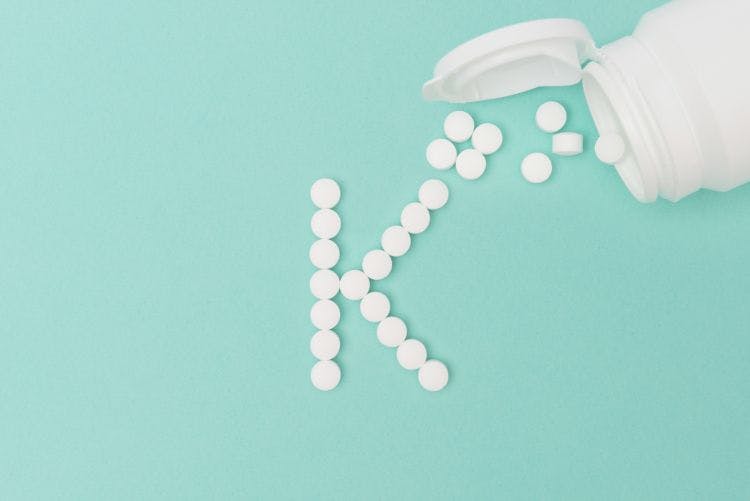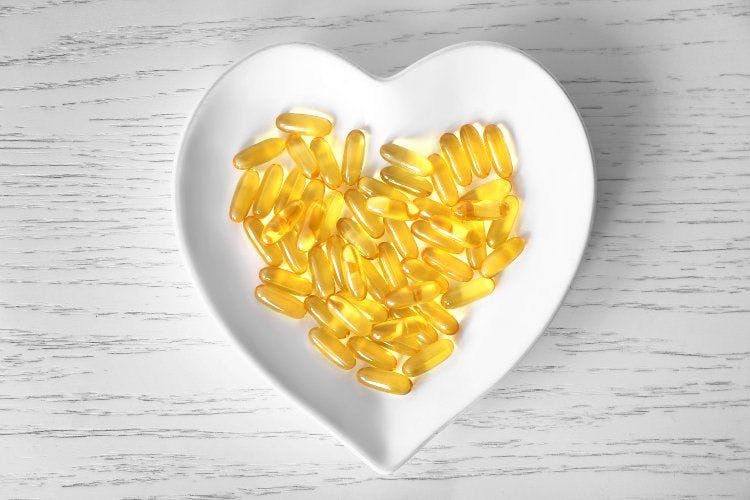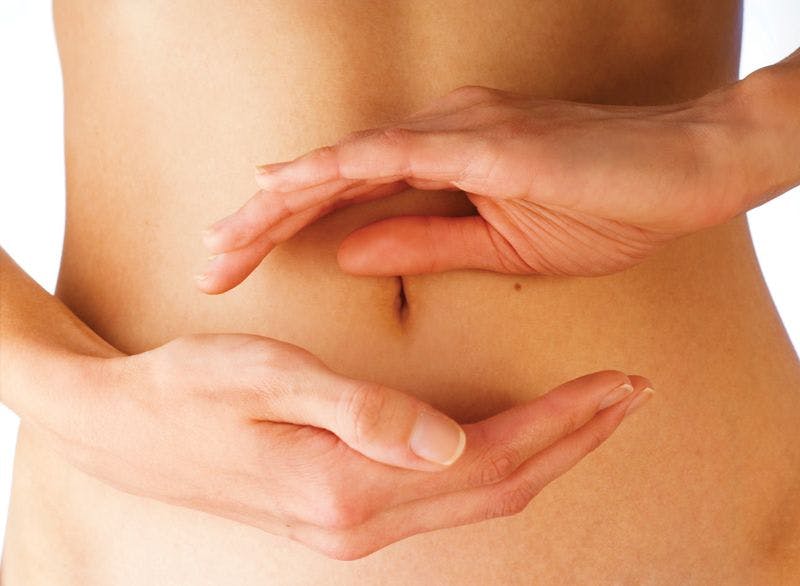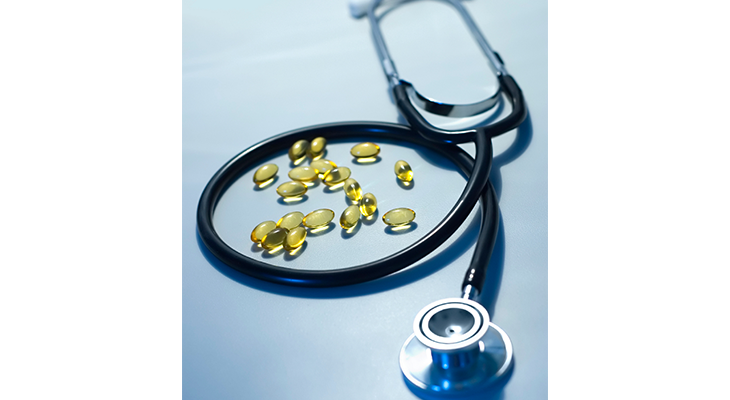Female shoppers remain a powerful audience for dietary supplements. But how can manufacturers reach them?
According to SPINS, female-positioned supplements grew at a rate of 6%, netting a total of $628 million in U.S. sales in the 52 weeks ending July 15, 2018.
Photo © Shutterstock.com/Puhhha

According to the 2017 CRN Consumer Survey on Dietary Supplements, fully 79% of women are supplement users-six points ahead of the men’s team, of whom only 73% profess regular supplement use.
That stat alone should be enough to turn supplement brands’ attention toward this powerful audience. Women are often the custodians of family health, and there are evolving opportunities for reaching female shoppers with a spate of new ingredients, delivery systems, and supplement products.
The numbers are pretty convincing, too. According to SPINS (Chicago), female-positioned supplements grew at a rate of 6%, netting a total of $628.1 million in U.S. sales in the 52 weeks ending July 15, 2018. Meanwhile, though supplements targeting men saw 9% growth, they still attained a market share barely more than half that of women’s at $364.3 million.
But most of all, says Kimberly Kawa, retail reporting analyst for SPINS, “Reviewing some products added to our reporting in the past year, it seems that some of the standout supplements belong to female-centric sets.” So if brands want to stand out from the crowd themselves, they’d be wise to put women’s formulas to work.
Satisfy a Need
So, do women buy more supplements than men? “Yes, for the most part,” says Keena Roberts, senior consumer health analyst, Euromonitor International (Chicago).
“Women tend to be more proactive about preventive health and more likely to incorporate supplements into an established health and wellness regimen,” she notes. “There’s also some evidence to suggest that women more readily incorporate supplements into their daily routines when they’re addressing premenstrual symptoms, and this makes it easier to incorporate other supplements at the same time because they’re just more accustomed to their use.”
And as with their interest in supplements for premenstrual relief, women’s pursuit of supplements across the board is frequently motivated not just by a general desire to be healthy, but by a desire to address specific health issues, as well.
Indeed, says Roberts, “The most popular supplements are positioned around need states. We see the whole vitamin and dietary supplement industry shifting toward products directed at terms like bone health, energy boosting, and digestive health.”
Michael Chernyak, president of CK Nutraceuticals (Oakville, ON, Canada), a supplier of many ingredients to support women’s health, says, “Today’s female consumer is interested in many areas encompassing health and wellness. It very much depends on a women’s specific life stage. Generally speaking, health concerns can revolve around osteoarthritis and osteoporosis, cognition, energy, menopause, digestion, cardiometabolic health, and more. One area where we’ve focused a great deal of our recent effort is mood balance. Lifestyles are very hectic in today’s society, and myriad daily demands are imposed on today’s female consumer. Mood support is an area of particular interest for us, as we see healthy mood being a key foundation for optimal wellness and healthy aging.”
Rising and Falling
Euromonitor’s Roberts has observed growth in immune-boosting formulas that include vitamins C, B6, B12, and E, plus zinc, calcium, magnesium, and iron-“all of which are ingredients that women in particular know they need,” she says. B vitamins overall appear on an upward trajectory with women, Roberts adds, “because of the perception that they combat fatigue and increase energy.”
Like Chernyak, Kawa points to sales of supplements for cognitive health and mood support-up 93% and 50% in the U.S., respectively, among women-as addressing an “emerging health focus in the female gender set.” And while such supplements capture a smaller market share than some other formulas, they “do report positive growth rates in the double digits,” Kawa says.
So, too, do supplements aimed at digestive health, which, among female customers specifically, brought in $46.7 million in U.S. total sales at a growth rate of 22%, Kawa says. “That’s a lot of growth, and mirrors broader interest in digestive health.” And whenever discussing winners in the women’s supplement space, products for urinary tract health will come up, which, Kawa says, are “perennially popular with women.” To wit, such supplements garnered $22.6 million in U.S. sales among women over SPINS’s 52-week reporting period, representing growth of 5%.
But not all lines lead upward with women’s supplements. Perhaps surprisingly, SPINS numbers show that though they make up a $38.3 million U.S. market, bone health supplements saw sales to women fall 7%. Sales of energy-support supplements to women were also down 8% for a total U.S. market share of $30.1 million. But the steepest drop of all was for weight-loss products among women, which SPINS data show brought in a trim $8.9 million while seeing their sales totals cut in half.
Take It Easy
Regardless of the supplement category they choose, female consumers “want to feel as if they’re taking a product that can help them with a specific prevention plan that works with their overall health and wellness-rather than just ‘taking a vitamin,’” Roberts says.
And yet, SPINS found that good old-fashioned multivitamins topped the list of delivery formats in terms of total U.S. sales, with multivitamins for women earning $395.7 million and seeing 6% growth.
Market data from IRI (Chicago) also found that traditional pills-specifically, tablets and capsules-remain the dominant form in the women’s category, holding onto a 65% share. But liquid and softgels as well as gummies account for a respective 25% and 3% of supplements available, IRI says, and though pills and liquid/softgel products saw dollar gains during the 52 weeks ending August 12, 2018, gummies declined.
Nevertheless, Roberts remains bullish on gummies “because of their ease of use and better absorption potential.” Similarly, supplement powders also show potential “since sachets are light and portable and easily incorporated into the shakes and other drinks women already take,” Roberts says.
Finally, developments in personalized nutrition promise to shape the women’s supplement space. “Consumers are wary of side effects and reluctant to take anything they don’t believe they need,” Roberts says. Consequently, “There’s a lot of interest in this industry about genetic mapping and how increased knowledge of human genetics can help consumers identify their own specific needs, and whether future innovation in this space can help companies develop personalized supplement regimens for individuals based on their genetics.”
While we’ve got a long way to go before such advances start trickling down to supplement shelves, there’s plenty of innovation in the women’s category for us to celebrate now. Ahead are just a handful of female-friendly supplements to keep your eyes on.
Blessed Events
According to SPINS, prenatal health is the most popular focus in the women’s supplement category, with total sales of $139.4 million and 4% growth.
As an example, Kawa points to Traditional Medicinals’ line of lozenges and chews, which target pre- and postnatal women with ingredients like raspberry leaf, ginger, fennel, anise, coriander, and fenugreek-galactogogues that promote breastmilk production. “These may be popular for women interested in the convenience of a chew or lozenge from a well-established company in the herbal-botanical space,” she notes.
Rainbow Light also promotes its Vibrance line of products as supporting women from preconception through each trimester and even to the postnatal phase. Key ingredients include active forms of the important vitamins B12 (methylcobalamin) and folate (methyltetrahydrofolate), as well as supportive botanicals for immunity, digestion, nausea, and other pregnancy-related issues, Kawa says.
Golden Girls
Among multivitamins for women, those targeting an older demographic brought in $70.1 million in the U.S. for the year ending July 15, 2018, up 10%, per SPINS.
“Natural Factors has a line specific to women with an array of focuses,” Kawa notes, “and their Multi Factors Women’s 50+ Vitamin & Mineral Formula contains botanicals, enzymes, and whole-food antioxidants as well as highly bioavailable forms of vitamins and minerals. The supplement also highlights the delivery method: easy-to-swallow vegetarian capsules.”
Smells like Teen Spirit
Kawa calls Rainbow Light’s Teen Girl’s Multivitamin plus Healthy Skin Support product “a top pick” among the female-friendly supplement set that SPINS tracked.
Ginger root extract, spirulina, bioflavonoids, carrot root, and chlorophyll are ingredients that purportedly promote clear and healthy skin. The formula’s iron and bioavailable B vitamins help teen girls maintain energy levels, ease stress, and keep their moods steady. And for improved digestion and gut health, 100 million CFU of probiotics plus prebiotics and plant-sourced digestive enzymes do their best to ease those butterflies that anyone who’s ever been a teen girl will remember.
Mind the Gap
Anecdotally, women tend to be more conscientious about eating right-choosing plenty of fruits, vegetables, whole grains, and lean sources of dairy and protein. But frustrating even their best-laid efforts is what’s known as the “enzyme gap”-that is, the difference between what a woman eats and what her body’s complement of enzymes can actually help her body digest and absorb.
Apparently, this gap widens as women age, and can lead to a litany of complaints ranging from digestive trouble, fatigue, and a weakened immune system to skin problems, mood swings, joint pain, and more.
So Phoenix-based gastroenterologist Liz Cruz, MD, created Everyday Enzymes, an organic, “all-natural” formulation of amylase, protease, lipase, cellulase, invertase, diastase, lactase, Lactobacillus acidophilus, Bifidobacterium longum, and cellulose, designed to aid digestion and absorption of all those healthful nutrients that women work so hard to eat.
Thanks, Mom!
In December of 2017, biotech firm Biosearch SA signed a license and supply agreement with Nestec SA, a division of the Nestlé group, to market the former’s probiotic strain Lactobacillus fermentum LC40, also known as “Hereditum.”
Nestec aims to include the Hereditum strain in a supplement designed to help breastfeeding women maintain healthy lactation-which makes sense, given that Biosearch chose this particular probiotic strain from among the hundreds that occur naturally in breastmilk.
In fact, clinical trials have demonstrated the Hereditum strain’s ability not only to eliminate the painful symptoms of mastitis-an inflammation of breast tissue-but to allow women to continue breastfeeding, and to continue reaping its benefits for their and their babies’ health.
Seeking, and Finding, Relief
Women’s search for products that provide premenstrual relief may never end. But it may have gotten closer to the finish line earlier in 2018 when results of a clinical study1 showed that Lipogen PMS, a natural phospholipid supplement formulation, exhibits positive effects on treating and relieving premenstrual syndrome (PMS) symptoms.
The randomized, double-blind, placebo-controlled trial involved 40 women aged 18 to 45 with physician-diagnosed PMS. After observing the subjects during an initial baseline menstrual cycle, the researchers administered to the subjects either a daily dose of the supplement complex (400 mg phosphatidylserine and 400 mg phosphatidic acid) or a placebo for the following three menstrual cycles.
Results showed that subjects in the Lipogen PMS treatment group saw an ongoing decline in their PMS symptoms, while the placebo group returned to initial PMS-symptom levels.
References:
- Schmidt K et al. “A lecithin phosphatidylserine and phosphatidic acid complex (PAS) reduces symptoms of the premenstrual syndrome (PMS): Results of a randomized, placebo-controlled, double-blind clinical trial.” Clinical Nutrition ESPEN, vol. 24 (April, 2018): 22-30
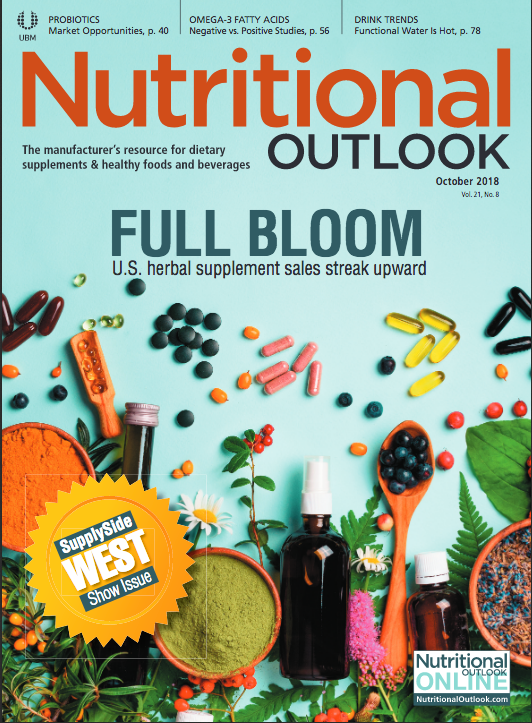
Prinova acquires Aplinova to further increase its footprint in Latin America
April 7th 2025Prinova has recently announced the acquisition of Brazilian ingredients distributor Aplinova, which is a provider of specialty ingredients for a range of market segments that include food, beverage, supplements, and personal care.



